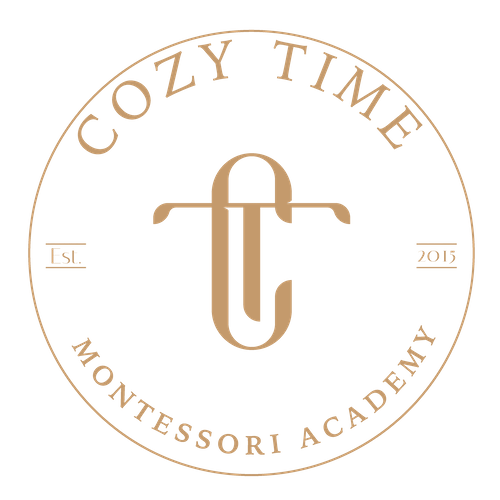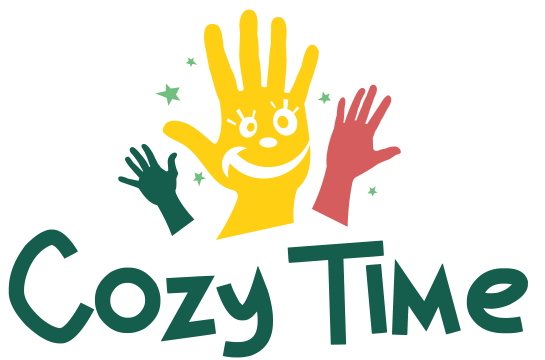Yes, Montessori education does support LGBTQ individuals and families by design. The Montessori philosophy is built on respect, inclusivity, and the celebration of each person’s uniqueness. In practice, Montessori schools strive to create an environment where all children and families feel safe, accepted, and valued – regardless of gender identity, family structure, or background.
Montessori’s Philosophy of Inclusion and Respect
From its very origins, the Montessori method has emphasized universal respect and inclusion. Dr. Maria Montessori was a pioneering educator and humanitarian who challenged many social norms of her time. She was one of the first female physicians in Italy and a vocal advocate for equality in education. Montessori believed in educating children for peace and understanding, insisting that boys and girls learn together as equals – a radical idea in the early 1900s. This foundation of equality and respect set the stage for broader inclusivity: if Montessori’s approach broke gender barriers over a century ago, it naturally extends to embracing diversity in all forms today.
In Montessori education, every child is regarded as a unique individual, worthy of respect. Key values officially upheld by Montessori organizations include inclusiveness, diversity, and respect. These values mean that discrimination or prejudice have no place in a true Montessori environment. Instead, teachers and students are encouraged to appreciate differences and learn from one another’s varied perspectives. Montessori classrooms around the world include children of different cultures, abilities, and family backgrounds, reflecting Dr. Montessori’s vision of a peaceful, accepting community.
Gender Neutrality and Diversity in the Montessori Classroom
A hallmark of Montessori classrooms is their gender-neutral and bias-free design. Montessori materials and activities are not labeled “for boys” or “for girls” – they are for everyone. Children are free to explore any interest in the classroom, whether it’s building with blocks, caring for babies, or doing math puzzles, without the burden of gender stereotypes. In fact, Montessori educators note that nothing in a well-run Montessori class reinforces gender norms, and teachers actively challenge such stereotypes when they arise. For example, you’ll often see boys happily arranging flowers or cooking in the play kitchen and girls constructing towers or working with science materials. All work and play are open to all children.
Equally important is the way Montessori teachers interact with children. Every child is treated as an individual, not as a gendered category. Teachers strive to observe each child’s interests and needs without bias. A Montessori teacher’s role includes undergoing a “prepared adult” transformation – learning to recognize and shed their own biases – so they can truly see and support each child for who they are. As one Montessori educator puts it, “we respect and accept each child, including their gender identity”. In practical terms, this means that if a child in a Montessori class expresses themselves in a gender-diverse way (for instance, a boy who enjoys wearing dresses or a child who says they feel different from their assigned gender), the Montessori approach is to honor that child’s self-expression and make them feel fully accepted.
This gender-neutral, accepting environment benefits all children. It teaches them early on that everyone has the freedom to be themselves. Children learn to cooperate and form friendships based on shared interests and mutual respect, rather than outdated gender roles. By “following the child,” a core Montessori principle, teachers support each child’s development and identity at their own pace. The result is often a group of students who are compassionate, open-minded, and comfortable with differences – qualities that lay the groundwork for understanding and supporting LGBTQ+ peers as they grow.
Inclusivity and Support for LGBTQ+ Families
Montessori schools not only support the children in their care, but also the families those children come from. In today’s Montessori communities, it is well recognized that families come in many forms – including families with two moms, two dads, single parents, transgender or non-binary parents, and so on. A Montessori school committed to inclusivity will welcome and respect all types of families, making no distinction in treatment or involvement based on sexual orientation or gender identity of the parents. As one Montessori resource summarizes, Montessori education actively supports all identities through anti-bias principles, affirming diverse family structures and personal identities while promoting respect and understanding. In other words, having LGBTQ+ parents or family members is a non-issue in the Montessori setting – it’s just part of the normal diversity of life that children are taught to appreciate.
Many Montessori schools explicitly include sexual orientation and gender identity as protected categories in their non-discrimination policies. This means that the school formally commits to not tolerating any harassment or exclusion on those grounds. More informally, Montessori teachers model inclusive language in the classroom. For example, rather than assuming every family has a “mom and dad,” they might talk about “families” in broad terms or read storybooks featuring many family types. This way, a child with same-gender parents sees their family affirmed in the classroom materials, and all children see that love and family come in many beautiful forms. Such practices send a clear message: everyone belongs.
Inclusivity also extends to school events and culture. Montessori schools often celebrate diversity through international days, cultural festivals, and yes, sometimes Pride or Rainbow celebrations in age-appropriate ways. While early childhood programs focus on creating a loving atmosphere rather than delving into complex discussions, simply displaying a small rainbow sticker or having books that include LGBTQ+ characters can speak volumes. It signals to children (and parents) that this is a safe space.
For instance, a Montessori teacher might include a picture book about a child with two dads during story time, or have classroom materials that avoid gender stereotypes, thereby normalizing differences in a gentle way. If questions arise (“Can a family have two mommies?”), Montessori guides answer simply and truthfully, focusing on the idea that family means love and people take care of each other, which children readily understand. By handling these topics with openness and simplicity, Montessori environments help children develop respect for all people from a young age.
How Montessori Educators Promote LGBTQ+ Inclusion
Within the Montessori community, there is a continuous effort to grow in understanding and allyship for LGBTQ+ inclusion. The American Montessori Society (AMS) and other Montessori organizations provide guidance and resources to help schools be more affirming. For example, experts encourage Montessori schools to take proactive steps such as:
- Training teachers and staff on LGBTQ+ topics: Montessori leaders suggest regular professional development on issues like gender diversity and inclusive terminology, so that educators are prepared to support every student and family. This might include workshops on understanding transgender identities or how to handle conversations about different family structures in an age-appropriate way.
- Including diverse books and materials: Classrooms are encouraged to broaden their selection of books, images, and learning materials to reflect LGBTQ+ individuals and themes (alongside other aspects of diversity). A growing number of children’s books feature LGBTQ+ characters or break gender stereotypes – these can be integrated into the Montessori environment to increase visibility and normalize diversity.
- Using inclusive language and policies: Montessori schools are revisiting the language in their handbooks, forms, and communications to ensure it’s inclusive. This can be as simple as saying “Dear families” in letters instead of “Dear mothers and fathers,” or making sure dress codes and bathroom policies are respectful of gender-nonconforming children. By updating policies to explicitly protect gender identity and expression, schools set a tone that discrimination will not be tolerated.
All of these measures align with the Montessori emphasis on creating a safe and supportive learning environment for every child. Incorporating such changes “increases visibility and sets the tone for a safe and supportive learning environment” for all students, not just those who are gender-nonconforming. In fact, Montessori educators often note that when inclusivity is practiced, everyone benefits.
Children learn from an early age that differences are normal and that kindness and empathy are the standards in their community. This not only supports any LGBTQ+ individuals in the school but also helps all children grow into compassionate, accepting adults. Montessori’s peace education curriculum reinforces this by teaching respect, conflict resolution, and global citizenship – values that naturally encompass LGBTQ+ acceptance as part of respecting human diversity.
Cozy Time Montessori’s Commitment to an Inclusive Community
At Cozy Time Montessori Daycare, we wholeheartedly uphold these inclusive Montessori values. Our mission is to provide a safe, nurturing environment where every child can be happy and grow – and that means every child and family is respected for who they are. We recognize that each family is unique, and we warmly welcome LGBTQ+ parents, relatives, and children as an integral part of our community. Just as Montessori philosophy teaches, we believe that diversity is a strength. Children at Cozy Time learn from day one that their classmates may have different kinds of families or may express themselves in different ways – and that’s perfectly normal and wonderful.
In line with Montessori principles and anti-bias education, Cozy Time Montessori ensures that our curriculum and classroom culture are inclusive. Our teachers model respect in the language they use and the stories they share. We include books that show diverse families and a variety of roles, so children see their own experiences reflected and also learn about others. Our activities do not segregate or stereotype by gender – every child is encouraged to explore all learning areas freely, be it science, art, or practical life skills. If a teachable moment arises (for example, a child asking about a classmate’s two dads or why a boy is wearing pink), our staff responds with honesty, sensitivity, and age-appropriate explanations that reinforce acceptance. Moreover, we provide ongoing support and training for our educators to deepen their understanding of diversity, equity, and inclusion topics, including LGBTQ+ awareness. This way, we continue growing as a truly welcoming place for all.
Most importantly, Cozy Time is committed to making every child feel loved and understood. In practice, this means listening to children and valuing what they share about themselves. If a child ever expresses feelings related to their identity, we take those feelings seriously and offer gentle support (in partnership with parents). We also stand against any form of bullying or exclusion; kindness and empathy are woven into everything we do during circle time, play time, and learning activities. Our approach echoes the broader Montessori community’s stance that each individual’s dignity and identity should be respected. By fostering such a positive, inclusive atmosphere, we ensure that all our students can focus on what children do best – learning, growing, and enjoying their childhood – without fear of being judged for who they are or what their family looks like.
Embracing All Identities in the Montessori Way
In summary, Montessori education absolutely supports LGBTQ individuals and families. The core Montessori tenets of respect, individual dignity, and community inclusivity naturally extend to people of all sexual orientations and gender identities. Montessori classrooms are designed to be environments where differences are embraced and every child is free to be themselves. Modern Montessori schools continue to advance these values by implementing inclusive policies, using anti-bias teaching practices, and ensuring that LGBTQ+ students, parents, and staff feel welcome and safe.
For parents seeking a nurturing educational setting for their child, it’s heartening to know that Montessori schools aspire to “affirm diverse family structures and personal identities while promoting respect and understanding.” This inclusive spirit is very much alive at Cozy Time Montessori Daycare. We pride ourselves on cultivating a community where love, acceptance, and learning go hand in hand. By choosing a Montessori environment that openly supports LGBTQ+ inclusion, you are choosing a place where your child will learn the values of empathy and respect from the very start. Every child has the right to be happy and accepted – and through the Montessori approach, we work each day to make that ideal a reality for all families.



